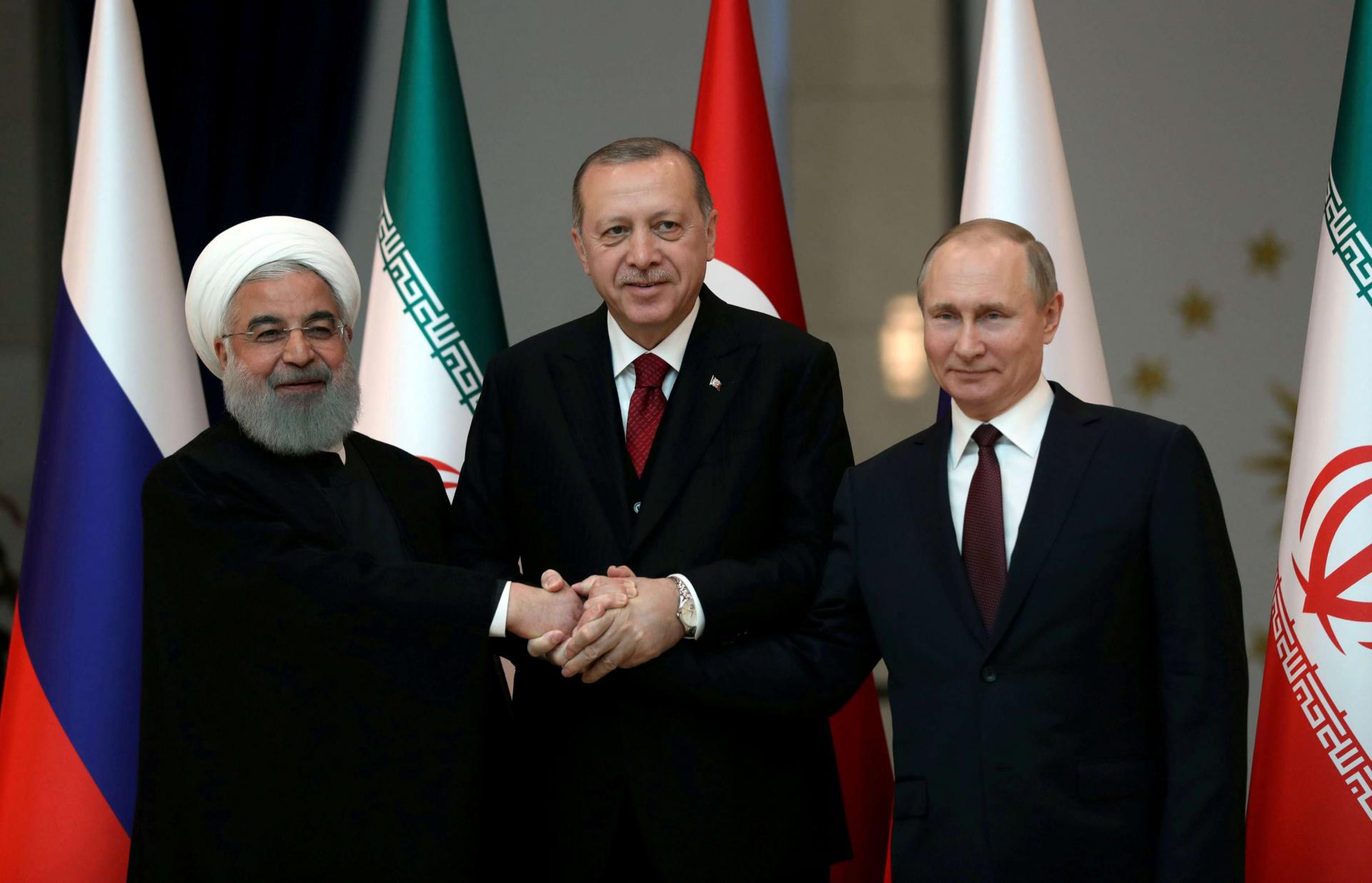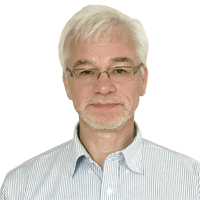Turkey attempts precarious balance as it jockeys for position in Syria
ISTANBUL - Heading into a series of crucial international talks regarding Syria, Turkey is trying to strengthen its position by deepening cooperation with Russia and increasing its military presence in northern Syria.
Turkey recently sent tanks and other military vehicles over the border towards Tel Rifaat in Aleppo province, Turkish news reports said. Tel Rifaat, 20km east of Afrin, was taken by Turkish troops earlier this year.
Other Turkish units were sent to reinforce troops on the border with Syria’s rebel-held Idlib province, where the Damascus government is preparing an offensive, the state-run Anadolu news agency said.
There are concerns that an attack on Idlib could trigger a wave of refugees into Turkey, which already hosts 3 million Syrians. The United Nations warned that a large-scale offensive in Idlib “has the potential to create a humanitarian emergency at a scale not yet seen” in the 7-year civil war and is floating the idea of evacuating civilians from Idlib to other parts of Syria.
Fighting could also endanger about 1,000 Turkish soldiers in Idlib, sent to Syria with Russian and Iranian approval to man 12 observation posts there.
“We are working with Russia and Iran to prevent a new Aleppo-like catastrophe in Idlib,” Turkish President Recep Tayyip Erdogan said August 30, referring to a drawn-out battle for the northern Syrian city that ended with the Syrian government taking control in 2016 and the death of thousands of people.
Erdogan is to meet with Russian President Vladimir Putin and Iranian President Hassan Rohani on September 7 in Iran. The looming offensive in Idlib is expected to be one of the main issues up for discussion.
Before the summit, Ankara intensified its talks with Moscow. Turkey’s foreign minister, defence minister and spy chief all visited Moscow in the last month. The development could strengthen Turkish-Russian ties at a time Turkey is locked in a bitter dispute with the United States. Speaking in Moscow, Turkish Foreign Minister Mevlut Cavusoglu called Russia a “strategic partner,” a term normally reserved to close Western partners such as the United States.
Idlib poses a test for the Turkish-Russian alliance in Syria. Russia, the main international partner of Syrian President Bashar Assad, expects Turkey to use its influence in Idlib to dissolve radical rebel groups there but it remains unclear whether Ankara will deliver. Reports said Ankara was negotiating with the Hayat Tahrir al-Sham (HTS) militia and other militant Islamist groups to give up their heavy weapons and leave the region.
In a sign Turkey might be bowing to Russian calls to increase pressure on rebel groups and accept a limited offensive in Idlib, Ankara officially designated HTS a terrorist organisation on August 31.
Since overcoming a bilateral crisis triggered by the downing of a Russian jet by Turkey in 2015, relations between Ankara and Moscow have improved dramatically. Erdogan and Putin have met about a dozen times in recent years to coordinate actions in Syria and boost economic cooperation. Turkey has dropped its insistence on the immediate departure of Assad and Russia has allowed Turkey to conduct cross-border operations against Kurdish militants in Syria.
In Idlib, Moscow’s support for Assad, who wants to recapture the rebel-held province to seal his military victory in the war, and Ankara’s assistance to rebel groups there have created conflicting interests between the two countries.
Still, Russia needs Turkey’s cooperation to bring the Syrian war to an end while Turkey needs Russian approval for its actions in Syria. In this context, Moscow does not mind deepening the rift between Turkey and the United States. Washington and Ankara are at loggerheads over the detention of a US missionary by Turkey.
“There is no trust left between Turkey and the United States,” said Celalettin Yavuz, an expert on international relations at Ayvansaray University in Istanbul. “In case of a chemical attack in Idlib, Turkey will believe that the United States is behind it,” he added.
One reason for the tensions between Turkey and the United States is Washington’s support for a Syrian-Kurdish rebel force regarded as a terrorist organisation by Turkey. Reports in Turkey said the latest Turkish troop movement into Syria’s Tel Rifaat was an answer to a decision by the United States to step up its assistance for the Kurds there. Turkish Defence Minister Hulusi Akar said the Turkish side was “constantly reminding” the Americans that Kurdish militants had to leave the region around Manbij, about 50km east of Tel Rifaat.
While tensions between Turkey and the United States simmer, the Iranian-Turkish-Russian summit in Iran showcases Ankara’s attempt at striking a delicate balance that serves its geostrategic interests with a focus on Syria.
Just four days after the summit, representatives of the three countries are to meet with UN Syria Envoy Staffan de Mistura in Geneva about drafting a new constitution for Syria.
On September 14, de Mistura is to host another meeting on Syria, this time with senior envoys from Egypt, France, Germany, Jordan, Saudi Arabia, the United Kingdom and the United States.
Thomas Seibert is an Arab Weekly contributor in Istanbul.
Copyright ©2018 The Arab Weekly — distributed by Agence Global







